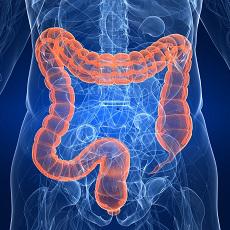
What is colorectal cancer?
Colorectal cancer is cancer that develops in the tissues of the colon or rectum. Your colon and rectum are part of your digestive system:
- Your colon is the first and longest part of your large intestine. It absorbs water and some nutrients from foods. It also changes the leftover waste products into stool (poop).
- Your rectum is the lower part of your large intestine. It's where your body stores stool.
Cancer that begins in the colon is called colon cancer, and cancer that begins in the rectum is called rectal cancer. Cancer that affects either of these parts may also be called colorectal cancer.
- Colorectal Cancer (National Library of Medicine)... Cancer that begins in the colon is called colon cancer, and cancer that begins in the rectum is ... and which type of cancer you have. For colon cancer, your treatment may include one or more of ...
- Colon cancer screening can detect polyps and early cancers in the large intestine. This type of screening can ... TESTS There are several ways to screen for colon cancer. Stool test: Polyps in the colon and small ...
- ... what steps you can take to prevent colorectal cancer . ... We do not know what causes colorectal cancer, but we do know some of the things that may increase the risk of getting it, such as: You are age 45 ...
- ... the colon). It is also sometimes simply called colon cancer. In the United States, colorectal cancer is one ... Many cases of colon cancer have no symptoms. If there are symptoms, the following may indicate colon cancer: Abdominal pain and tenderness in the ...
- ... if: You are being screened or tested for colon cancer . You have abdominal pain, changes in bowel movements, ... bleeding in the stomach or intestinal tract, including: Colon cancer or other gastrointestinal tumors Colon polyps Bleeding veins ...
- ... of a past finding, such as polyps or colon cancer Inflammatory bowel disease ( ulcerative colitis and Crohn disease ) Screening for colorectal cancer
- ... may mean you have a polyp. Other names: colon cancer screening What are they used for? Colorectal cancer ... decision: Colonoscopy (visual exam) Advantages The most sensitive colon cancer screening test Looks at the entire colon Can ... Conditions [Internet]. Cleveland (OH): Cleveland Clinic; c2024. Colorectal (Colon) Cancer; [reviewed 2024 Nov 14; cited 2024 Apr 29]; [ ...
- ... often spread to the liver include: Breast cancer Colorectal cancer Esophageal cancer Lung cancer Melanoma Pancreatic cancer Stomach ...
- Colon cancer is the third most common cancer in the United States. Risk factors include a diet low ... The treatment of colon cancer depends on the stage of the disease. Stage I cancer is limited to the inner lining of the colon; ...
- ... cells pass with the stool through the colon. Colon cancer cells may have DNA changes in certain genes. ... 75 years and have an average risk of colon cancer. This means that you do not have: Personal ...



